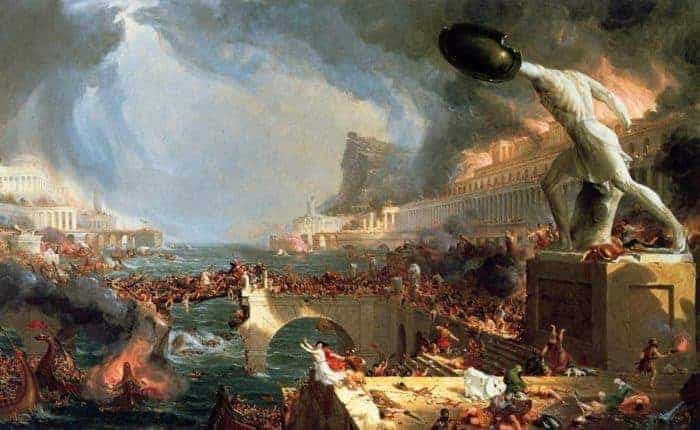When it comes to Egypt’s Library of Alexandria, the story is sometimes oversimplified. It was the greatest library ever built. All the great works of the time were housed in the library. The library burned and much of the greatest literature and books on science from the period were lost forever. But the real story is much more complicated. The real question surrounding the library is whether or not it had any effect on history at all.
The Library of Alexandria was one of the largest and most important libraries of the ancient world, and just like historical figures at the time, much of what is known about the library is a mix of truth and legend. The library was tasked with collecting all of the knowledge of the world and they were giving the funding and the royal mandate to do it. Scholars traveled the world to find books to bring back to the library. Any boat that docked at Alexandria had their books confiscated and taken to the library. The scholars would then copy the books down on papyrus and give the copies back to the owners of the book.
International scholars were also welcomed at the library and they were given the money to travel to the library and the funds needed to live in the city and provide for their families. The scholars at the library were particularly well known for their work on the writings of Homer. But despite all the support given to the library by Ptolemy II, by the time of Ptolemy VIII, the library was no longer what it once was. Scholars had begun to leave for other libraries by the early part of the 2nd century BC in search of better pay and resources. International scholars were all expelled by Ptolemy VIII in 145 BC.

Undoubtedly, the Library of Alexandria was the largest in the world but it was not nearly as large as many would believe. It did house tens of thousands of scrolls, but nowhere near the hundreds of thousands that some sources might claim. This is largely part of the library that is now shrouded more in legend than truth. But to assume its destruction changed the course of history would be to assume that what was destroyed at the library was the only copy and that was rarely the case. While the library may have held many originals, other libraries around the world had their own copies of the great works of the time.
The other issue surrounding the impact of the burning of the Library of Alexandria is the fact that there is no solid evidence it burned at all. Historians debate on when the library burned, if it burned, and whether or not there were a number of different fires that gradually destroyed the prominence of the library.
The first time the library faced fire was in 48 BC during the siege of Alexandria. Julius Caesar set fire to the docks and his own ships in order to prevent the enemy from cutting off his lines of communication. It was said that this fire spread to the Library of Alexandria and destroyed it. The biggest point of dispute for this account is the work of Strabo 30 years later. Strabo wrote about the Musaeum in Alexandria that was attached to the library. Strabo did not mention the library but some believe this may have been because the two buildings were one in the same.
Others question that if the library did burn when Caesar set fire to the docks, why didn’t the Musaeum burn as well? Some historians say it was the warehouses near the docks that stored manuscripts that burned in the fire, and not the library itself.

